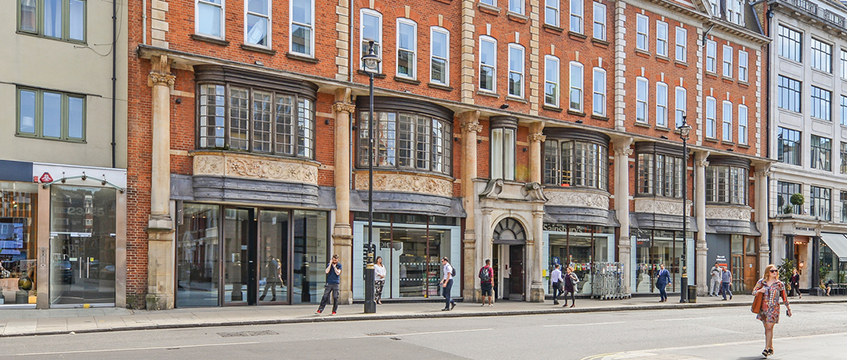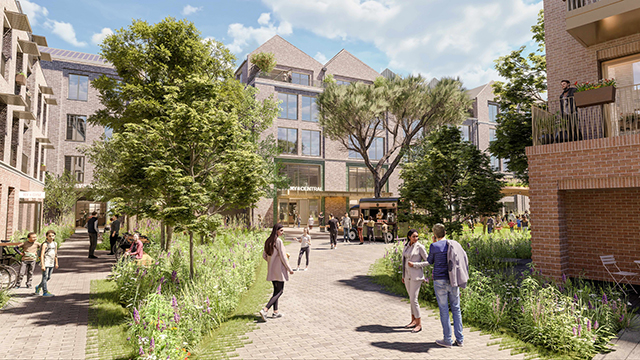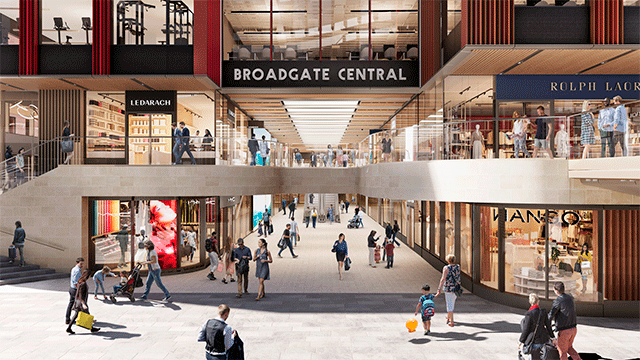MIPIM 2019: Headwinds in the UK are not unique, and the reticence of investors is as much to do with the questions hanging over the future of retail and offices as much as Brexit, according to Peter Hayes, managing director, global head of investment research at PGIM.
The UK does exhibit volatile returns and its capital value cycles are very pronounced, meaning that timing when it comes to investing in the UK and London is a critical factor, he said during his keynote on global investors’ view of London and the UK.
In terms of London, Brexit may be causing more uncertainty, but the forecasts of its demise as a financial centre “look overdone”, and its outlook, along with rental growth, is better than that of continental Europe, Hayes added.
So does Brexit and the changing nature of real estate mean the UK’s usual hotspot for investment has passed its peak or is there more to come?
“The UK is making life difficult for investors at the moment because no-one knows what is going to happen [with Brexit], which then makes it difficult for them to take things to their investment committees because in a macro view the UK seems much more risky than other countries right now,” said Allen Chilten, head of funds, capital markets at Patrizia.
“But we still think there are opportunities in London,” he added.
“London is still very good in terms of human capital, universities and the legal structures, so generally at a high level we like it.
“Looking at the rental growth prospects, yes, Brexit is going to have an impact in the short term, but there’s not a huge amount of development in London at the moment, so we still think there’s an opportunity post-Brexit to get some quick wins on rental growth.”
Too successful
Liz Peace, an adviser on property and the built environment, said: “London over the past 10 or 15 years has just been too successful, to the detriment of the rest of the UK, but what we’re now seeing is the rest of the UK catching up.
“The UK has absolutely needed London, but there’s this politics of envy around it.
“I don’t believe in the long term anything serious is going to happen to the potential for investment in London.
“We are actually seeing London spreading. The places that are investible are different now, and looking at where people will be investing and where people will be working and living in London in 10, 15 or 20 years’ time will see some new districts.”
This includes plans for the £26bn regeneration scheme of Old Oak and Park Royal in West London, on which Peace advises.
John Miu, chief operating officer at Royal Albert Dock, which is undertaking a £1.7bn regeneration of the east London area next to the capital’s City Airport, agreed that London has several areas ripe for regeneration as it enters its next stage of evolution.
“London is always transforming. It’s very diverse, it’s very service-orientated and all the people working in London will not change, even with Brexit.
“Sectorally, London has an established financial and legal sector but now is diversifying with high tech and innovation, which is making London stronger,” he said.
“London ain’t going anywhere,” Peace added.
The panel
- Allen Chilten, head of funds, capital markets, Patrizia
- John Miu, chief operating officer, Royal Albert Dock
- Liz Peace CBE, adviser on property and the built environment
- Chaired by Damian Wild, editor in chief, EG
In partnership with

EG is proud to continue its role as official media partner at the world’s leading property market event. With a focus on promoting UK investment through a global lens, click here to follow the latest news, read EG’s new investor guides and keep up to date with social media.
To send feedback, e-mail louise.dransfield@egi.co.uk or tweet @DransfieldL or @estatesgazette











